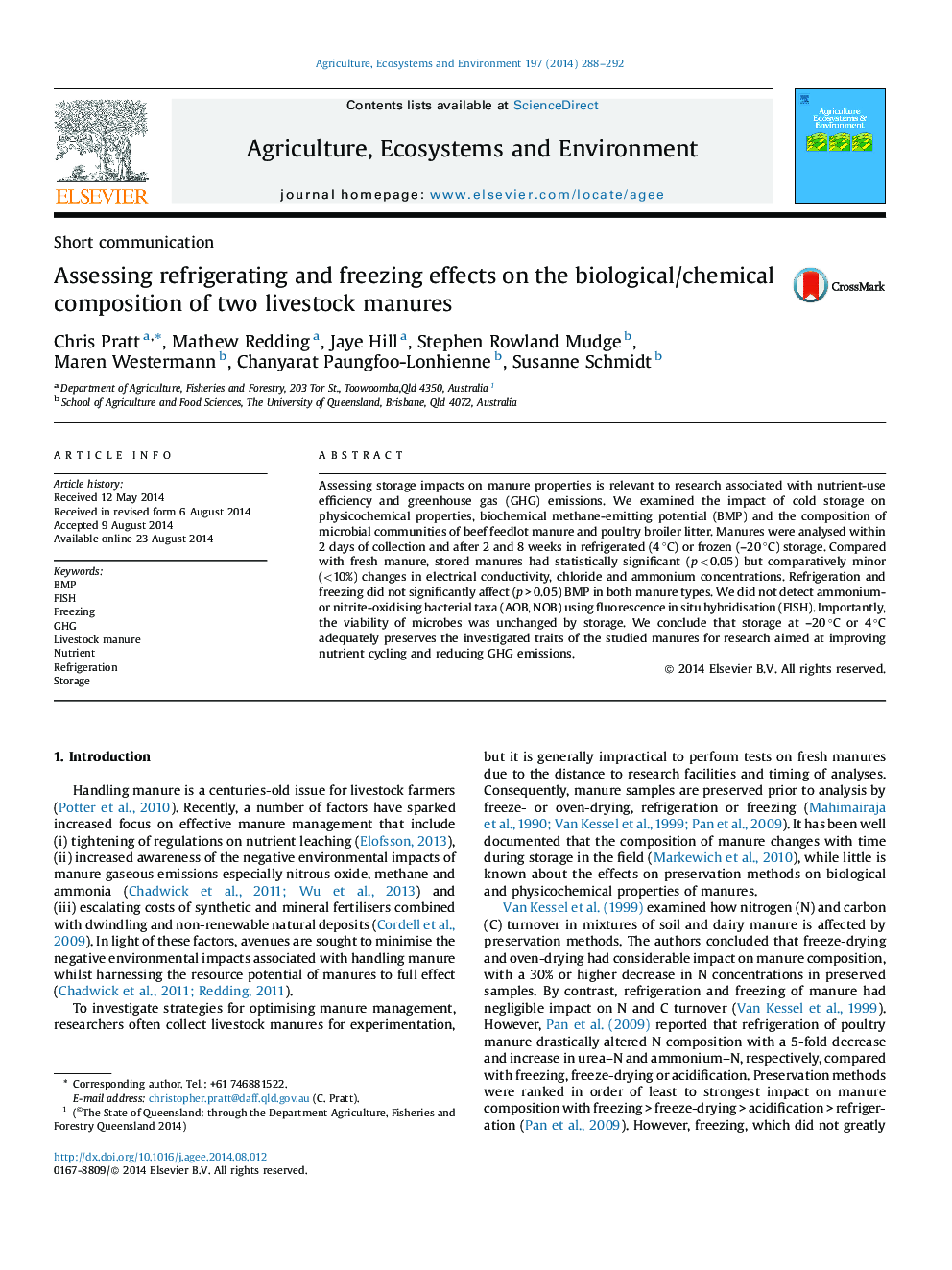| Article ID | Journal | Published Year | Pages | File Type |
|---|---|---|---|---|
| 2413830 | Agriculture, Ecosystems & Environment | 2014 | 5 Pages |
•Livestock manures are collected for a variety of experiments and analyses.•It is often desirable to store manures for lengthy periods for future experiments.•We assessed beef and poultry manure composition during storage at 4 °C and –20 °C.•The manures showed negligible change at these storage temperatures over 8 weeks.•Refrigerating and freezing manures are adequate to retain the original composition.
Assessing storage impacts on manure properties is relevant to research associated with nutrient-use efficiency and greenhouse gas (GHG) emissions. We examined the impact of cold storage on physicochemical properties, biochemical methane-emitting potential (BMP) and the composition of microbial communities of beef feedlot manure and poultry broiler litter. Manures were analysed within 2 days of collection and after 2 and 8 weeks in refrigerated (4 °C) or frozen (–20 °C) storage. Compared with fresh manure, stored manures had statistically significant (p < 0.05) but comparatively minor (<10%) changes in electrical conductivity, chloride and ammonium concentrations. Refrigeration and freezing did not significantly affect (p > 0.05) BMP in both manure types. We did not detect ammonium- or nitrite-oxidising bacterial taxa (AOB, NOB) using fluorescence in situ hybridisation (FISH). Importantly, the viability of microbes was unchanged by storage. We conclude that storage at –20 °C or 4 °C adequately preserves the investigated traits of the studied manures for research aimed at improving nutrient cycling and reducing GHG emissions.
